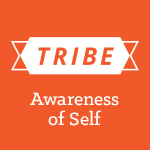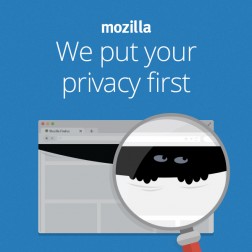What we have at Mozilla is one of a kind – we’re a fiercely passionate community of people creating beautiful products that users love. Our inspiration and passion for our mission is contagious, and we want to attract and join forces with top-tier people to work alongside us who share that drive. We run on collaboration- connecting ideas and Mozillians from around the world- and behind-the-scenes, the Recruiting Team is constantly working to find dedicated future Mozillians to help us reach our goals.
WHEN IS THE NEXT SKILLS LAB?
The next Skills Lab will take place on Thursday June 5th, 2014 from 8:30AM-10:00AM PDT. The session will include how to make your referrals successful, will create a time to check up on existing referrals, and will provide Mozillians with answers to their questions on the general Referral process as a whole. There is no RSVP required- just join the Mozilla_Recruiting Vidyo room and the IRC channel #recruiting.
WHY SKILLS LABS ARE IMPORTANT
The experience with Mozilla Recruiting reflects our brand and who we are. The process acts as our first opportunity to set ourselves apart from our competitors, who are also fighting for the same candidates on the hunt for their next opportunity. But the Recruiting process and a candidate’s impression of Mozilla isn’t just created by Recruiters or by the people who schedule their interviews- it’s also shaped by interviewers, by Mozillians like yourself.
The interview experience is a team effort between the Recruiting team and Mozillians- you could argue that to an extent every Mozillian is a recruiter. Mozilla Recruiting wants to be a transparent resource for Mozillians. We want to provide Mozillians with the tools in their toolbox to feel confident interviewing and to help us pull in the best talent to join the team. To solve for this, we created Skills Labs.
JANUARY 2014: INTRODUCING SKILLS LABS 1.0
We launched the inaugural Skills Labs in January 2014. Conversations included [but were not limited to] how to balance cultural and technical questions, learning what not to ask during an interview, checking in on a referrals that had been submitted, and how to write interview feedback. Skills Labs took place in common rooms on-site in both Mountain View and San Francisco the last Tuesday of every month as well as remotely over Vidyo and IRC on the last Thursday of each month.
After the first three months, attendance began to dwindle and the questions began to repeat themselves. We started to realize that the Skills Labs that we were presenting to the organization were not exactly what Mozilla needed- and that we needed to take a step back and see what was not working.
HOW WE GOT TO SKILLS LABS 2.0
After each Skills Lab, attending Mozillians were sent a satisfaction survey to give the opportunity to provide feedback on their experience. Questions in the survey provided insight to what was successful (and not-so-successful) about each lab, whether the attendee found value in the Skills Lab and would recommend attending the Lab to a fellow Mozillian, and also solidified metrics on virtual versus on site participation. Most importantly, the survey provided the Recruiting team with a greater understanding regarding what Mozillians expected to learn from attending a Skills Lab.
Diving into the nitty-gritty of the numbers, results were evenly split between Mozillians who wanted Skills Labs to be topic based and those who enjoyed the lack of structure and ability to ask questions on any topic on a whim. A majority of participation from Skills Labs during Q1 of 2014 was virtual (opposed to Mozillians who attended on site in a Mozilla office). Outside of the satisfaction survey, several international Mozillians reached out asking to have more sessions that were more accommodating of time zone differences, and several reached out saying they were unable to attend but would have loved to watch a recording of the session. 100% of attendees said that they would recommend attending Skills Labs to other Mozillians.
WHAT WE CHANGED
We’ve used the feedback to reflect on what we could improve to better serve Mozilla, and we’re ready to try a new approach-
- Skills Labs will become virtual only [not on site at a Mozilla office]
- Skills Labs will start at 8:30AM PDT to accommodate more of our internationally based Mozillians
- The structure of Skills Labs will change, each beginning with a 15-minute brown-bag style, topic-based learning session from a member of the Recruiting team. The remainder of time will be spent as “office hours”, with the Recruiting Team available to answer any topic of questions on the Recruiting Process. Mozillians will also be able to suggest future Skills Labs topics to the Recruiting Team.
- Skills Labs will be recorded and uploaded to the Recruiting MANA page for those unable to attend live. They will act as a future resource for those curious to learn more about specific programs of Recruiting, like the Referral program.
LEARN MORE:
- The schedule for Recruiting Skills Labs is posted here.
- If you have suggestions for topics for these labs, please let them in the comment section or ping us on IRC #recruiting.
- Want to be reminded about upcoming Skills Labs? Click here.
- Interested in having your team attend an in-depth Interview Skills Training session as a group? Click here.
- For direct questions, please get in touch with Michelle Marovich (IRC MichelleMarovich) or Rachel Berenbaum (IRC Rachel).


